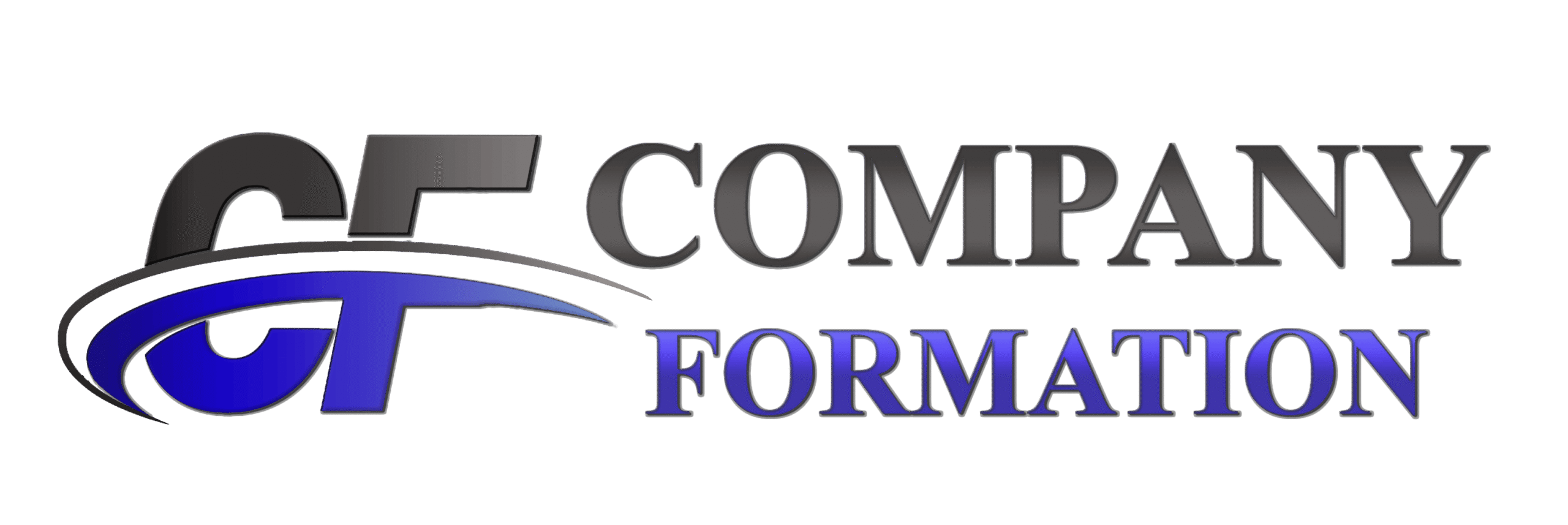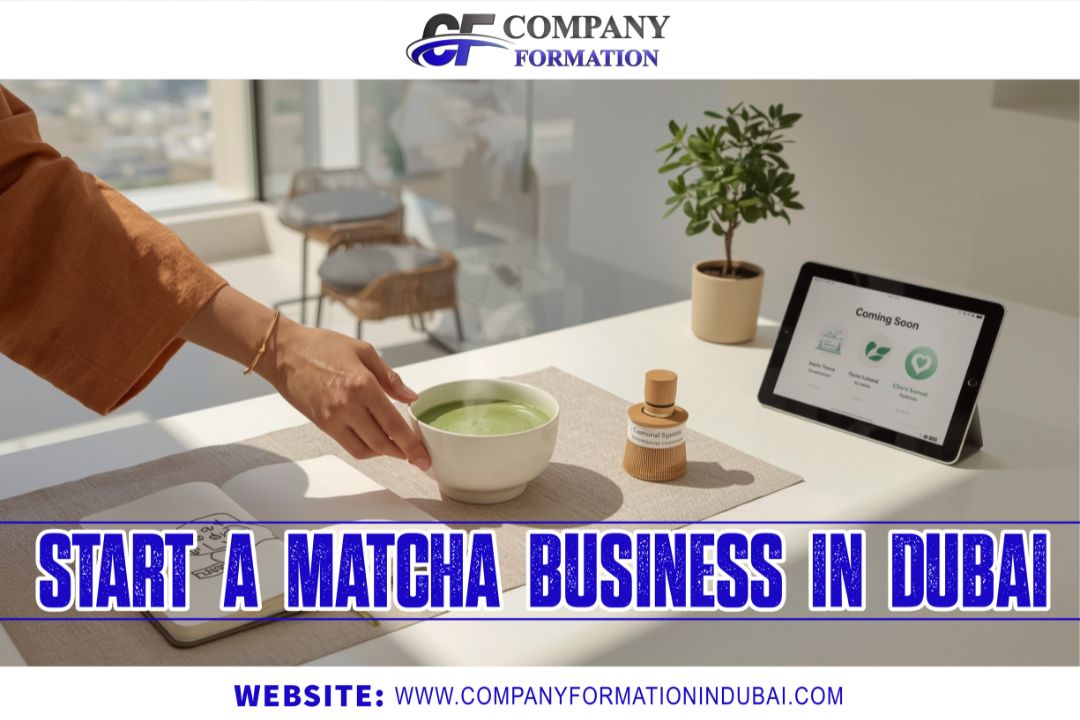How to Start a Matcha Business in Dubai in 2025: A Step-by-Step Guide
If you want to open a matcha shop in Dubai, here’s what you do: First, check out the market to find the slice you want to own. Decide if you want a cute café, a slick online store, or a mix of both. Write a business plan that lays out every detail. Next, register your biz with the Dubai Department of Economic Development (DED) or pick a free zone if that suits you better. Grab the trade license you need. After that, shop around for high-quality matcha that you’d be proud to serve. Build a brand that pops on social media, because marketing will be half your battle. Plan to spend AED 25,000 to AED 50,000 to get the doors open, depending on the style you pick. Lastly, keep the UAE’s food safety rules in your back pocket to make sure you stay out of trouble.
What Is Matcha and Why Is It Popular in Dubai?
So, matcha is that ultra-fine green tea powder that’s buzzing all over Japan and proving super popular in Dubai, too. It’s made from tea plants that grow in the shade, which makes the leaves pack extra antioxidants, L-theanine (the chill one of the tea compounds), and catechins (like the famous EGCG). When you sip matcha, you actually drink the whole leaf powder, which means you get all the hype in one drink. Think smoother energy, laser-sharp focus, and a metabolism that’s always ready to work. The powder looks neon green and has a savory kick, so it shows up in everything from creamy matcha lattes and fruit-packed smoothies to desserts and even face masks.
The Dubai matcha boom is real because the city is all about health and hashtags. Everybody—especially Gen Z and the expat crew—is snatching up anything that looks and feels wellness-first, so getting picture-perfect green drinks is a no-brainer. Matcha is all over Ramadan iftar menus, cool-down yoga classes, and of course, the glamorous Instagram grids. Plus, industry experts say the UAE wellness market is set to grow 7.5% a year till 2027. That makes starting a Dubai-based matcha brand a mega-smart strategy.
Why Dubai Loves Matcha:
- Health Hype: locals are hunting for superfoods, and tea leaves don’t get much super-er than matcha.
- Money to Spend: the city’s big spenders don’t blink at paying top dirhams for organic and ceremonial-looking matcha.
- Cultural Match: the drink is perfect for Ramadan’s after-sunset energy boost, so everybody’s ordering it at iftar.
Is Starting a Matcha Business in Dubai Profitable?
Yeah, opening a matcha business in Dubai can make a lot of cash if you know the right people to sell to and offer really good product. The matcha market worldwide is on track to hit almost $2.8 billion by 2027, and right now in the UAE, the tea is blowing up thanks to health-savvy drinkers, a huge café scene, and not that many shops selling the stuff yet.
Profitability Factors:
- High Profits: Selling matcha can give you bigger profits (30–50% more) than a latte, especially if it’s high-quality.
- Flashy Customers: People in Dubai love dropping cash on cool, good-for-you drinks.
- Not Many Rivals: You can still find space in the market before it gets packed.
- Flex Plans: You could open a matcha-only café, sell online, or even ship matcha kits for home whisking.
Challenges to Address:
- Rent in prime spots is sky-high; a café in Dubai Marina might cost AED 100,000–200,000 a year.
- Customers need to learn the difference between everyday and fancy matcha.
- Bringing in organic matcha from Japan or Sri Lanka can rack up the shipping fees.
Steps to Launch a Matcha Business in Dubai
The formulation of a matcha enterprise in Dubai necessitates meticulous preparation aligned with the Emirates’ commercial statutes. The following twelve inform individual investors—regardless of prior experience—on effective procedures to activate such a venture by 2025.
Step 1: Market Feasibility
Comprehensive investigation is mandatory to ascertain actual consumption and the density of established players.
- Demographic: The prime clientele includes expatriates oriented toward well-being, Generation Z, and Emirati devotees of healthy living.
- Competitive Landscape: Catalogue neighborhood venues that incorporate matcha in their offerings and e-commerce outfits that distribute powders and paraphernalia.
- Seasonality: Evidence indicates that iced lattes command preference during the summer, whereas hot matcha remains prevalent through the winter months and the month of Ramadan.
Step 2: Model Selection
A clear choice of operating format will optimize capital deployment and strategic objectives.
- Branded Café: Establish a compact outlet emphasizing emphasis on a diverse matcha menu—lattes, vigour smoothies, and dessert innovations such as matcha-infused kunafa.
- Digital Retail: Launch a dedicated portal merchandising ceremonial matcha, matched domestic kits and, where permitted, matcha cosmetics using platforms such as Shopify or MarketPlace by Noon.
- B2B Distribution: Supply matcha powder in bulk to leisure centres, commercial kitchens, and hospitality establishments.
- Private Branding: Source certified organic matcha and reposition it under a proprietary label.
- Curated Delivery: Prepare a subscription structure featuring monthly electronic kits combining matcha, collated recipes, and requisite apparatus.
Step 3: Construct the Detailed Business Plan
A comprehensive business plan is mandated prior to the formal incorporation of any enterprise in Dubai. Ensure that the following components are meticulously articulated:
- Business Objectives: articulate your aspirational framework (e.g., pre-eminent matcha supplier to the Emirati marketplace).
- Demographic Target: identify the psychographic segments likely to patronise the enterprise, such as health-conscious consumers, devotees of yoga, or habitual visitors to cafés.
- Financial Forecasts: approximate establishment expenditures (AED 25,000–50,000) and anticipated monthly turnover (illustratively AED 10,000 in a kiosk format).
- Promotional Approach: delineate a strategy predicated on strategic deployment of social media and coordinated influencer partnerships.
- SWOT Appraisal: conduct an analytical framework encompassing strengths (specialist market entry), weaknesses (substantial import expenses), opportunities (minimal incumbent rivalry), and threats (imperative consumer literacy).
Step 4: Determine the Appropriate Jurisdiction
Ascertain the optimal framework for Dubai company formation by selecting between maravigh, the developer-period, and the market-extan licenses— the former licence and the DED is domicile to and a remit.
- Mainland: suited for food and beverage or retail format enterprises, permitting unobstructed commercial trading across the UAE and incumbent commercial registration at the Department of Economic Development.
- Free Zone: advantageous for digital retail or bulk distribution models, granting expatriate proprietors full equity and tax concessions. Pre-eminent jurisdictions incorporate DMCC, IFZA, and SHAMS.
Comparison:
| Factor | Mainland | Free Zone |
| Ownership | May require local sponsor | 100% foreign ownership |
| Market Access | Trade anywhere in UAE | Limited to free zone or via distributor |
| Cost | AED 13,000–24,000 (license) | AED 5,500–13,000 (license) |
Step 5: Register Your Business and Trade Name
Select a distinctive trade name that aligns with your matcha identity and adheres to UAE regulations:
- Steer clear of any terms that might be deemed offensive and refrain from using the acronym “Emirates.”
- Verify name availability with the Department of Economic Development (DED) or the respective free-zone authority.
File the following documents to initiate business registration in Dubai:
- Passport copy
- UAE visa copy (when applicable)
- Trade name reservation certificate
- Initial approval certificate
Step 6: Obtain a Business License
Acquire the business license that corresponds to your matcha operations:
- Commercial License: Required for the trade of matcha powder or related goods (cost ranges from AED 5,500 to AED 13,000).
- Food & Beverage License: Necessary for retailing matcha in a café or kiosk environment (starting from AED 24,000).
- Health & Beauty License: Required for the formulation and sale of matcha-infused skincare products.
Step 7: Secure Food Safety Approvals
If your business involves food or beverage, adhere to the food safety regulations of Dubai Municipality:
- Register your products using the Montaji online platform.
- Acquire food safety approvals to govern handling and labeling procedures.
- Verify that the matcha powder complies with UAE quality standards, including certifications such as Japanese Agricultural Standards (JAS) or Hazard Analysis and Critical Control Points (HACCP).
Step 8: Source Quality Matcha
The integrity of your brand rests on premium matcha; hence, procure from reputable cultivators in Japan (Uji and Nishio) or from select producers in Sri Lanka:
- Ceremonial Grade: Recommended for high-end beverage offerings, priced between AED 100 and AED 200 per 100 grams.
- Culinary Grade: Use in desserts or multi-purpose skincare (AED 50–100/100g).
- Obtain laboratory authentication and relevant certifications (e.g., USDA organic, HACCP).
- Adhere to UAE customs statutes through the Food Import and Re-export System (FIRS).
Step 9: Establish Premises or Digital Retail Presence
Physical location:
- Secure a lease in a high-traffic destination, such as the Dubai Mall or Kite Beach (AED 50,000–200,000/year).
- Design a welcoming café with ample ergonomic seating and vertical flower walls.
E-commerce:
- Develop an enterprise platform utilizing Shopify or WooCommerce with PCI DSS-compliant payment solutions (e.g., Tap, Telr).
- Expand distribution through Noon and Amazon.ae to capture a broader audience.
Step 10: Open Official Commercial Bank Account
A dedicated financial account is critical for operational transparency. Required submissions include:
- Valid trade license
- Certified copies of passport and residence visa
- Memorandum of Association, where applicable (LLC structure)
Financial institutions such as Emirates NBD or Mashreq offer bespoke solutions for merchants.
Step 11: Amplify Visibility of the Matcha Venture
Differentiate the offering in Dubai’s dense landscape via the following methods:
- Digital Media: Generate Instagram Reels demonstrating layered matcha indulgences or limited-edition Ramadan blends.
- Influencer Synergy: Engage key wellness micro-influencers and fitness advocates.
- Experiential Activations: Organize tasting experiences at Ripe Market or Expo City.
- Search Engine Optimisation: Publish authoritative articles on “nutritional advantages of matcha” and “premier matcha lattes in Dubai” to enhance organic traffic.
Partner with local yoga studios and fitness centers to feature and market your matcha energy shots, leveraging their client base to create mutual visibility.
Step 12: Maintain Regulatory Alignment and Plan for Geographic Growth
- Secure annual renewal of your commercial registration.
- Report value-added tax if annual turnover surpasses AED 375,000.
- Consider replication of your model across additional Emirates or within the wider GCC, using either direct-to-consumer matcha subscription boxes or fulfillment through volume wholesale distribution.
Documents Required for a Matcha Business in Dubai
To complete business registration in Dubai, gather these documents:
- Passport copy
- UAE visa copy (if applicable)
- Emirates ID copy
- Trade name reservation certificate
- Initial approval certificate
- Memorandum of Association (MOA) (for LLC)
- Tenancy contract or Ejari
- Business plan
- Food safety approvals (for cafés or food products)
- Import/export code (for trading)
- Label approval certificate (for packaged matcha)
Costs of Starting a Matcha Business in Dubai
Startup costs for a matcha business in Dubai range from AED 25,000–50,000, depending on the model:
| Business Model | Estimated Cost (AED) | Key Expenses |
| Matcha Kiosk | 15,000–30,000 | License, equipment, inventory |
| Matcha Café | 100,000–200,000 | Rent, fit-out, staff, license |
| E-commerce Store | 10,000–25,000 | Website, inventory, marketing |
| Wholesale Supply | 20,000–40,000 | Import costs, license, storage |
Additional Costs:
- Visa costs: AED 3,000–5,000 per visa.
- Food safety approvals: AED 1,000–5,000.
- Marketing: AED 5,000–10,000 for initial campaigns.
Tips for Sourcing Matcha in Dubai
Sourcing high-quality matcha is critical for success:
- Partner with Japanese suppliers from Uji or Nishio for authenticity.
- Request organic certifications and lab tests (e.g., JAS, HACCP).
- Compare bulk pricing (e.g., AED 50–200/100g) to balance cost and quality.
- Ensure compliance with UAE import regulations via Dubai Municipality’s Montaji system.
- Test samples before bulk purchases to verify flavor and color.
Marketing Strategies for Your Matcha Business
To grow your matcha brand in Dubai:
- Instagram Reels: Share matcha latte tutorials or Ramadan iftar recipes.
- Influencer Marketing: Collaborate with Dubai-based fitness or wellness influencers.
- Pop-Ups: Host events at Kite Beach or Dubai Wellness Festival.
- SEO Blogs: Write about “health benefits of matcha” or “best matcha suppliers Dubai 2025.”
- Collaborations: Partner with gyms or yoga studios for matcha energy shots.
Frequently Asked Questions About Starting a Matcha Business in Dubai
Q1: What is the cost of a matcha business license in Dubai?
A commercial license costs AED 5,500–13,000, while a food and beverage license starts at AED 24,000, depending on the jurisdiction (mainland or free zone).
Q2: How do I source matcha for my Dubai business?
Partner with Japanese suppliers (e.g., Uji, Nishio), ensure organic certifications, and comply with Dubai Municipality import rules via the Montaji system.
Q3: Is matcha popular in Dubai?
Yes, matcha’s popularity is growing due to Dubai’s cafe culture, health-conscious population, and demand for premium beverages like matcha lattes and smoothies.
Q4: What are the best matcha business ideas for Dubai?
Popular models include matcha cafés, e-commerce stores, wholesale supply, matcha skincare, and subscription boxes tailored to health-conscious consumers.
Q5: Do I need food safety approvals for a matcha business?
Yes, if selling food or beverages, you need approvals from Dubai Municipality and must register products via the Montaji system.
Q6: Can I start a matcha business in a free zone?
Yes, free zones like DMCC or IFZA offer 100% ownership and tax benefits, ideal for e-commerce or wholesale matcha businesses.
Conclusion: Brew Your Matcha Business Success in Dubai
Starting a matcha business in Dubai in 2025 is a golden opportunity to tap into the UAE’s wellness market. With careful planning, quality sourcing, and smart marketing, you can build a profitable brand in this vibrant city. Whether you open a matcha café in Dubai Marina, launch an e-commerce store, or supply matcha powder to local gyms, the steps above provide a clear path to success. Use PRO services to streamline business registration in Dubai and focus on delivering high-quality matcha to health-conscious consumers. Ready to brew your dream? Start today and make matcha the next big thing in Dubai’s café culture!





